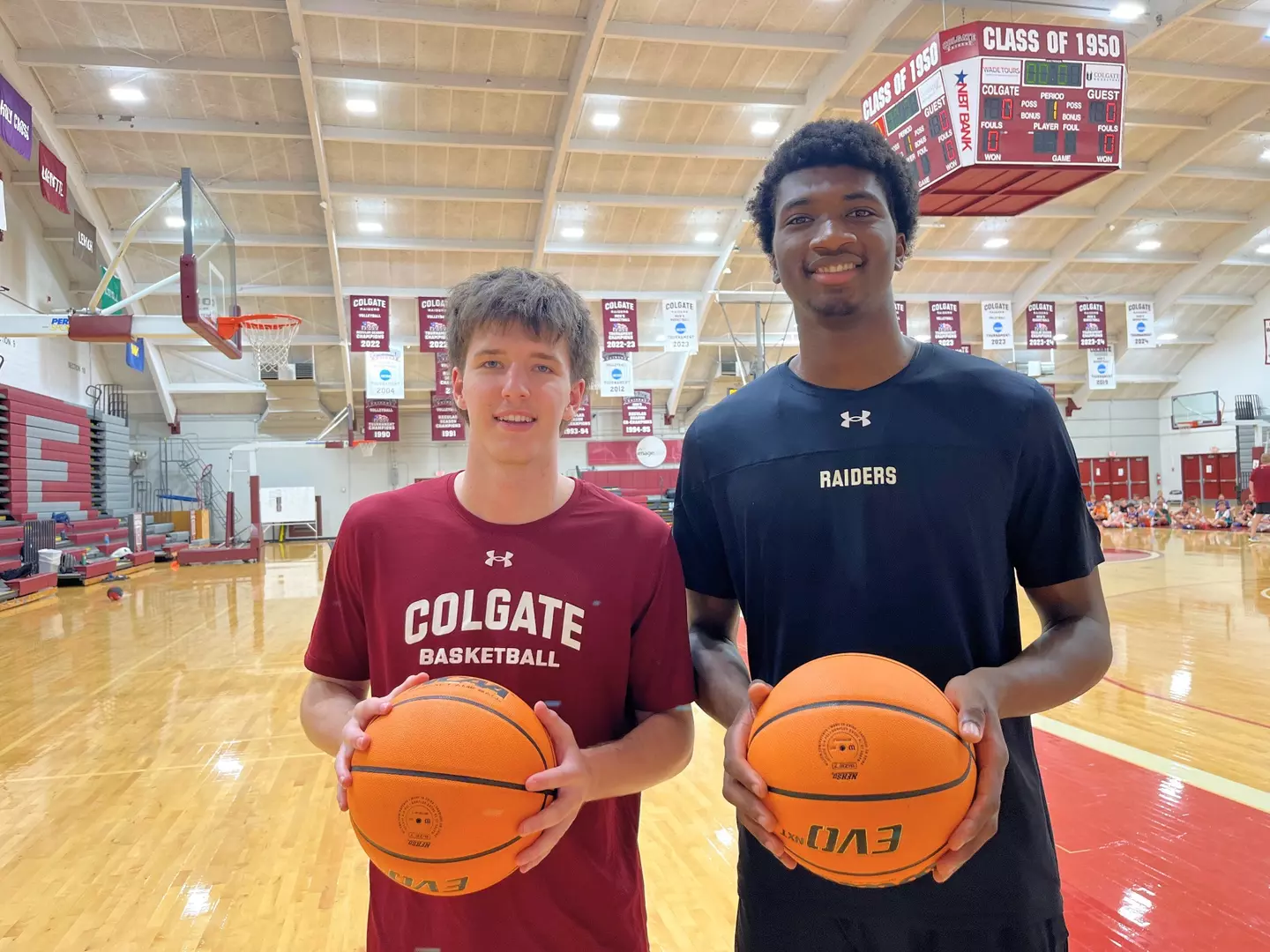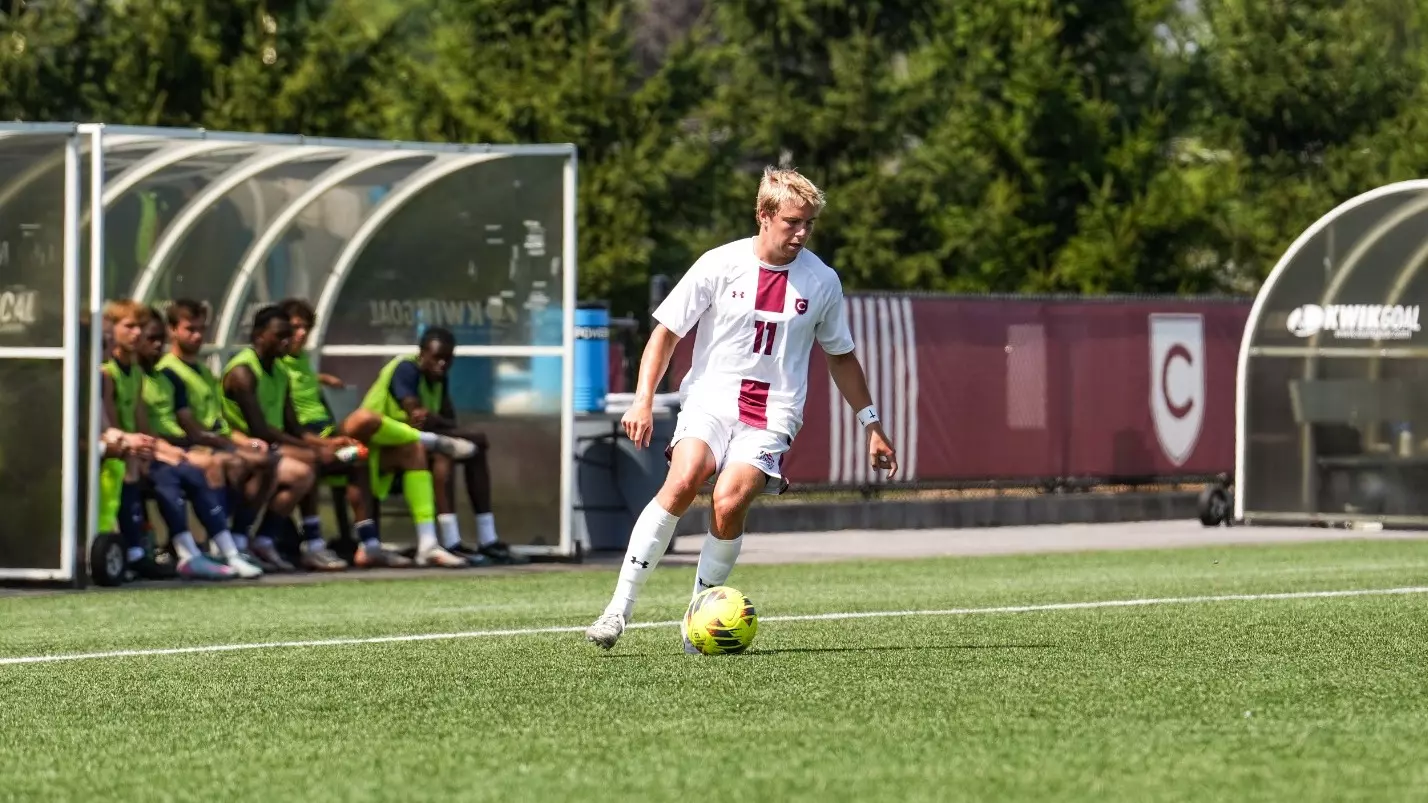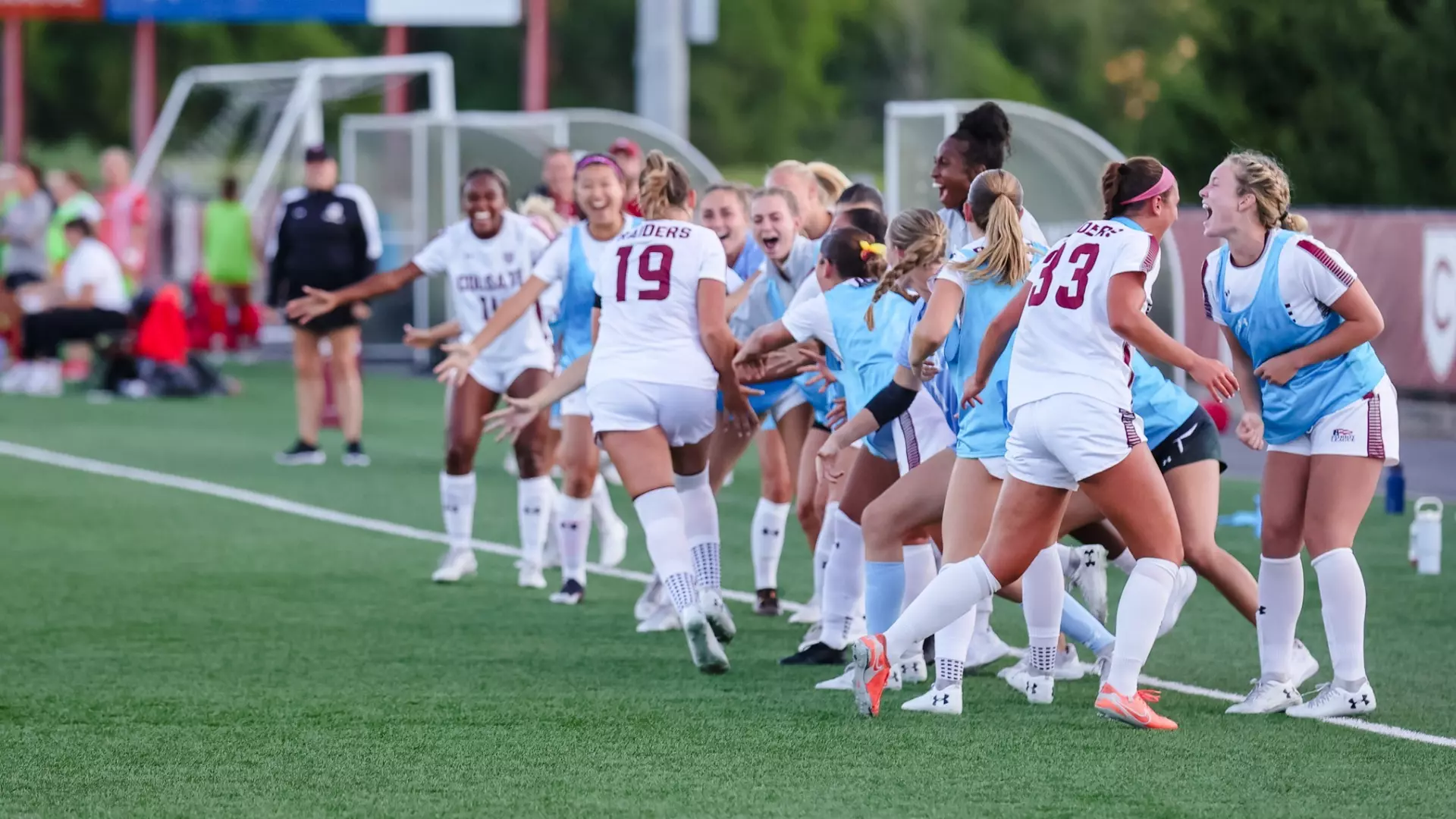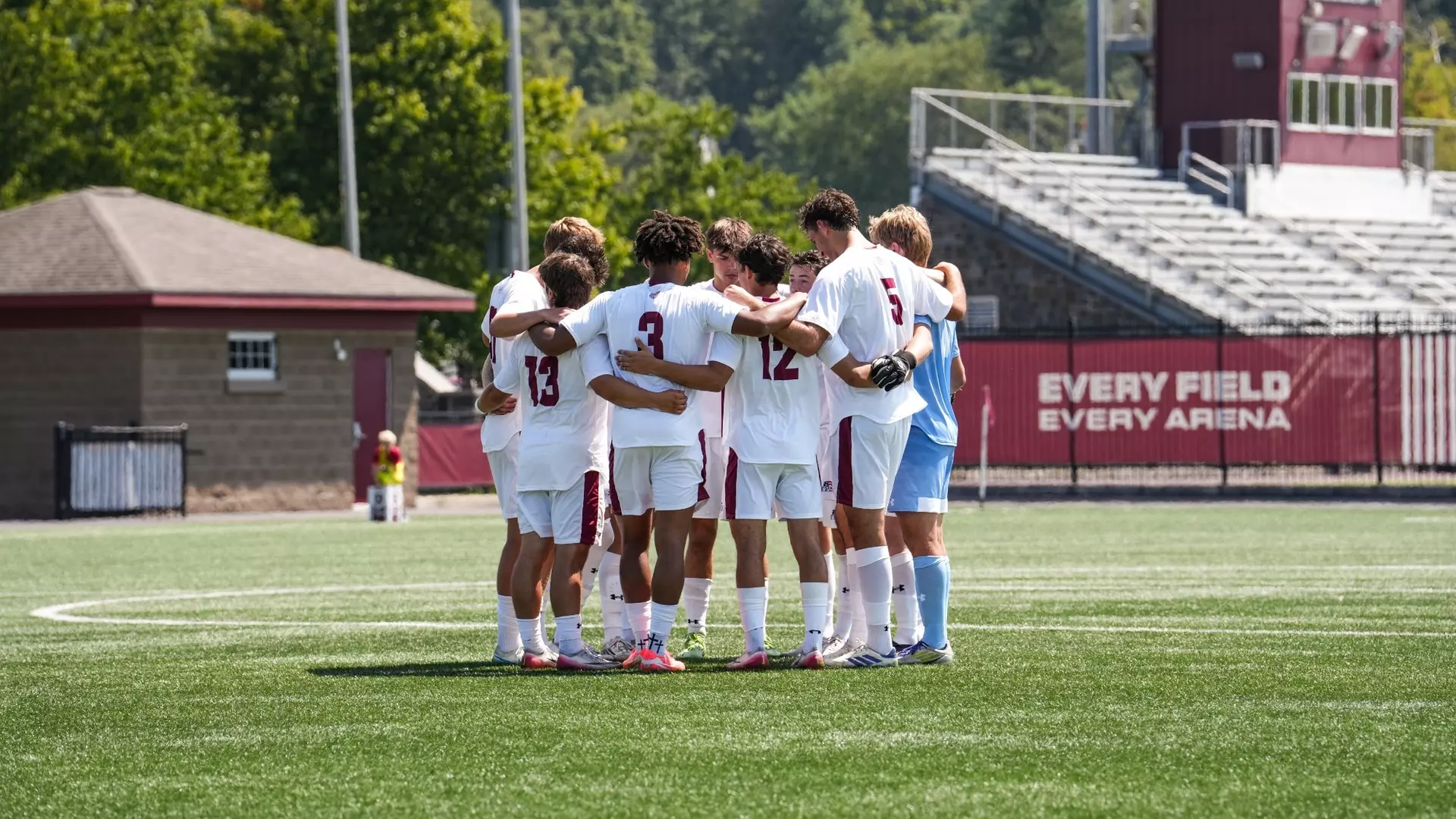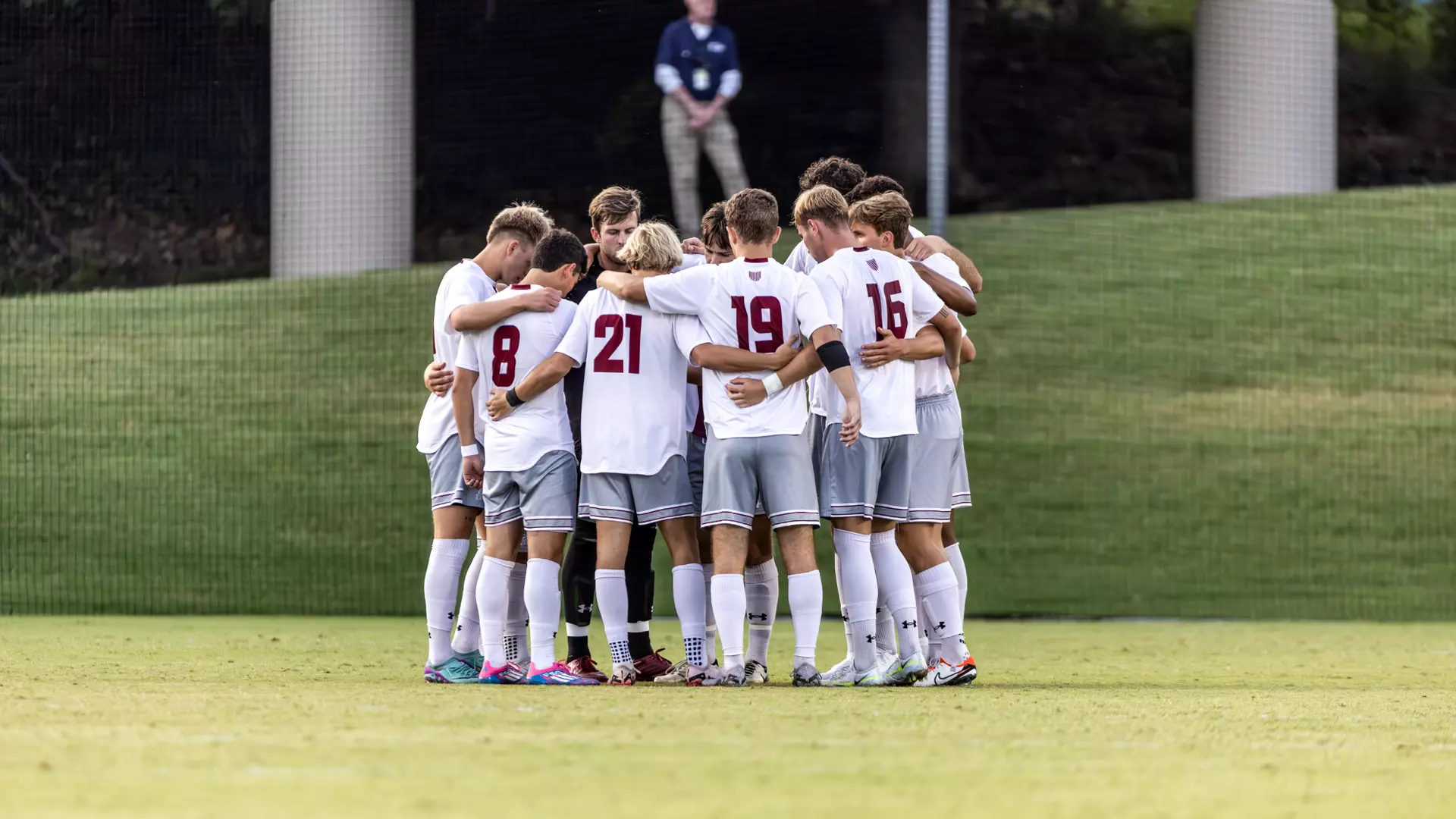New Raiders Take Unique Journey to Colgate

Ben Tweedy and Ayomi Odetoyinbo are happy to join Colgate Men's Basketball.
Ayomi Odetoyinbo ’29 and Ben Tweedy ’28 are among the newest members of Colgate Men’s Basketball, each one continuing on a journey that has brought them from far corners of the globe.
Odetoyinbo grew up in Canton, N.Y., but was born in Ikeja, the capital of Lagos state in Nigeria. At age 6, he and his mother moved to the North Country, where he lived until he enrolled at a boarding school in New York City to complete his high school education while playing for an elite basketball program.
Tweedy hails from Rockhampton, Queensland in Australia. He’s the son of a professional Australian basketball coach. He played in junior and pro leagues in his homeland before enrolling at the University of Wisconsin-Green Bay, where he played for one season before transferring to Colgate over the summer.
Odetoyinbo and Tweedy were drawn to Colgate for similar reasons — the success of the men’s basketball program, the academics, the sense of community, the support from coaches, and the belief that they could grow and make an impact with the Raiders.
They are among five incoming student-athletes who made their debuts with the team at a week-long training camp in late July. Both newcomers are thrilled for the opportunity to suit up in maroon-and-white.
“I’m very excited,” Odetoyinbo said. “I’m very happy to be here. I’m ready to get to work and learn as much as possible, and keep getting better as an athlete and a person. I just want to grow here.”
In 2013, Odetoyinbo moved to Canton with his mother, Morolake Odetoyinbo, who enrolled at St. Lawrence University to obtain a master’s degree in mental health counseling. After she graduated, they made Canton their permanent home.
Ayomi Odetoyinbo played high school basketball in Canton, but later transferred to the Our Saviour Lutheran School in the Bronx. Moving from Canton to a major city was a big adjustment for the towering 6-foot-10 forward.
But it was a necessary transition for a teen with aspirations of playing D-I basketball. His new school offered a more competitive basketball program, where he gained the tools to take the next step.
“In the Bronx for two years, it was a lot of fun,” Odetoyinbo said. “I got a lot better. It was definitely an adjustment period. It was so different, going from a small town to a big city, jumping levels of basketball. I’m glad I went. It’s the reason why I’m here now.”
Odetoyinbo credits his mother for giving him the inspiration to work harder.
“She’s very brave, being able to move countries and start a whole new career path in upstate New York, where there’s no family around,” he said. “She gives me the confidence to pursue what I want to do. Throughout my whole basketball journey, she has always been my biggest supporter.”
Tweedy grew up watching his father, Neal Tweedy, coach a professional Australian basketball team. As Ben Tweedy played in junior leagues, he received plenty of advice from his father while off the court. But he didn’t play for his father until later on in life.
“He always had this thing where he never coached my junior teams,” Tweedy said. “He wanted me to learn from different coaches. But off the court, he helped me.”
At age 16, Tweedy moved out of his home to enroll at the Southport School, a boarding school that was seven hours away. Leaving home to live on his own was difficult. He had to learn to be independent quickly, knowing his parents weren’t nearby for help.
But the move offered him the opportunity to play in the top basketball program in the state. While at the boarding school, he also found time to play for the Gold Coast Rollers, a pro team in Australia’s second tier league.
The high school team and the pro club were both coached by the same person, Anthony Petrie, who taught Tweedy much about the game.
“Now, looking back on it, it was a great experience,” Tweedy said. “It taught me a lot of things. I had to grow up pretty quickly. You didn’t have mom and dad to call if you got in trouble. Looking back now, I definitely had to grow up really quickly, which was good.”
After completing his high school education, Tweedy moved back home and played one season with a different professional team, this one coached by his father. He was there for one season before he made the move to Wisconsin.
Colgate Men’s Basketball won’t officially kick off the preseason until late September. But the team has already practiced on campus and served the community, with student-athletes spending time together this summer as they build bonds on and off the court.
After a couple of days at the basketball camp in July, Tweedy said he felt good despite feeling a bit jet lagged.
“We’ve had two practices. They have been good,” Tweedy said. “We have a great group of guys. A lot of talent. Now, it’s all about putting it all together and learning to play with each other.”
Odetoyinbo and Tweedy join a roster that includes three other international players in Ethan Brown ’28, Josh Ahayere ’28, and Cameron Brennan ’28, who are all Canadian.
Head Coach Matt Langel said he couldn’t recall another time in his 15 years at Colgate that he had five student-athletes who hailed from other countries.
He said his program doesn’t intentionally target international players, but rather focuses on finding talented student-athletes who bring the right characteristics — such as character, hard work, and an interest in education.
And that’s exactly what Odetoyinbo and Tweedy bring to the table, along with basketball talent that could help the Raiders in different ways. Langel praised Odetoyinbo for his athleticism and ability to develop, while Tweedy is a savvy point guard with an ability to see the game.
“We are very excited about what they can do and how they can fit in our program,” Langel said.
In addition, their unique perspectives will add to the culture of the team.
Langel said that his experience from playing professionally in Europe made him realize he had taken for granted the U.S. college experience — where players have many opportunities to pursue an education while playing a sport.
But in other countries, athletes must play for club teams rather than university teams if they want to reach the most competitive leagues.
“As I moved into coaching, I always found that young people from other countries who want to pursue higher education and sports at this level, have a slightly different outlook and perspective,” Langel said. “They sometimes have a different appreciation for the opportunity at hand. When you are able to add them to the team, we can all benefit.”
Latest Top News
- Pipkin Selected to Hermann Trophy Watch ListKANSAS CITY, Mo. - As the NCAA Men's Division I college soccer regular season officially got underway the United Soccer Coaches announced the players named to the 2025 Hermann Trophy Watch List.
- Colgate Picks Up First Win of 2025HAMILTON - Nikki DiCaprio's 67th minute goal helped lift the Raiders over Marist, 2-1 on Thursday night at Beyer-Small '76 Field.
- Raiders Roll Stonehill in Season OpenerEASTON, Mass. - First years Cole Ramey and Ryan Schachter logged a goal and an assist apiece in their collegiate debuts to help the Raiders get off the mark in 2025 with a 3-0 opening day victory over Stonehill on Thursday in Easton, Mass.
- Colgate Ready for 2025 SeasonHAMILTON - The Raiders open their 2025 account on the road against Stonehill in Easton, Mass. Colgate defeated the Skyhawks 3-1 in Hamilton last season with goals coming from Liam Winograd, Conor Geraghty, and Cason Stafford, all returning this season.
- Colgate Volleyball Picked First in Preseason Poll; Bayless Earns Top HonorThe Colgate University women's volleyball team has been predicted to finish atop the Patriot League, according to the 2025 preseason poll. In addition to the team's top ranking, rising junior Milan Bayless has been named the 2025 Patriot League Preseason Women's Volleyball Player of the Year.
- This Week in Colgate Athletics: Aug. 18 - Aug. 24



